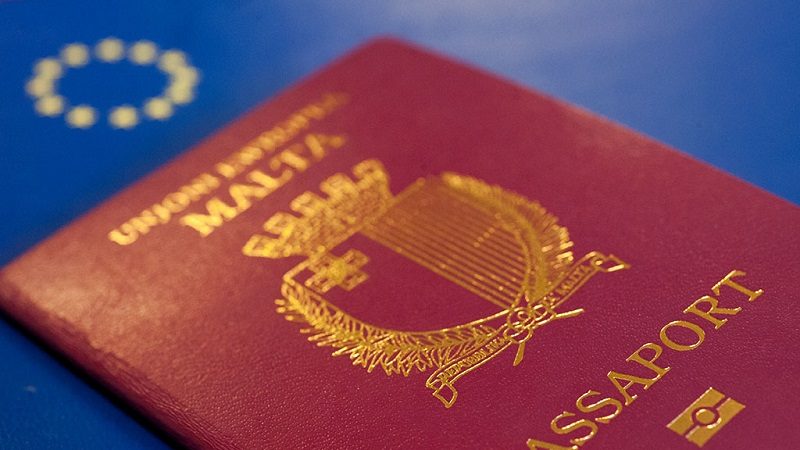Malta’s lack of enforcement in the highly-controversial Individual Investor Programme (IIP) was put under a microscope by international anti-corruption NGO Global Witness who repeatedly called for an end to such a scheme in EU countries.
In a report, titled Europe’s Golden Doors – The lack of progress in stopping the criminal and corrupt accessing Europe via Golden Passports, the international organisation looked at the passport schemes offered by Malta, Cyprus and Portugal and slammed Identity Malta’s response to revelations on shady passport buyers as “weak”.
It said that since the EU took an “enhanced interest” in golden passport and visa schemes in European countries early last year, the Maltese authorities have not made changes to the IIP while “controversy surrounding the programme has not abated”.
The document went on to list numerous reports linking Maltese passport holders with money laundering, fraud or tax-dodging crimes that emerged throughout 2019.
These include Israeli businessman Anatoly Hurgin, who is charged with fraud in the US and fraud, smuggling and money laundering in Israel; Liu Zhongtian, an aluminium billionaire indicted in the US on allegations of avoiding close to $2 million in American tariffs; Boris Mints, a billionaire facing fraud charges in the UK; and Mustafa Abdel Wadood who pleaded guilty to conspiracy and fraud charges, among others.
“The response of Malta’s golden passport authority (Identity Malta) has been weak. Only in the case of Mustafa Abdel Wadood and his dependents could we find any evidence that they have started the process of revoking their Maltese citizenship,” the report said.
The NGO noted that the minor changes proposed by Malta’s regulator in the last annual report in October 2019, are “merely cosmetic” and would “simply enshrine the existing situation”. The proposed changes include amending parts of the law relating to discretionary powers of Identity Malta to consider applicants, even when they are officially ineligible.
When observing the lack of enforcement surrounding the scheme, the NGO also found it noteworthy to mention the incident where a partner in the law firm Chetcuti Cauchi referred to his connections to government officials in a video recorded by undercover journalists. The firm’s licence was suspended, but Global Witness highlighted the regulator’s conclusion that there was “no indication of collusion between the agent and the responsible Minister”.
These incidents raised questions as to whether the scheme was as rigorous as the Maltese authorities tried to portray, the organisation said.
The report went on to list the number times Malta had been urged to end the controversial scheme. At the end of 2019, the European Parliament reiterated its call for Malta to terminate its investor citizenship and residence scheme.
In October 2019, Bank of Valletta closed accounts of clients seeking to acquire Maltese citizenship through the passport scheme as part of a de-risking exercise, and, in January, the Maltese Chamber of Commerce called on Prime Minister Robert Abela to temporarily suspend the scheme.
Malta’s IIP regulator had acknowledged that an element of risk would remain despite the level of due diligence adopted, the NGO noted, and therefore the only way to eliminate inherent risks would be to end the scheme. This, however, does not seem like the government’s plan seeing that both Abela and Parliamentary Secretary for Citizenship Alex Muscat have made it clear that they intend to renew the programme.
Global Witness put forward a number of recommendations to the European Union to stop these “widely abused” schemes which “expose the whole of the EU to significant money laundering, tax evasion, corruption risks and security threats”.
“If the EU is serious about this, it must adopt EU-wide legislation to regulate golden passport and visa schemes with a view to phasing them out completely,” the organisation said.
Recommendations to the EU
Global Witness suggested that the European Commission (EC) proposes legally binding EU rules to ensure the phasing out of golden passport and visa schemes as part of a new approach to fight money laundering and the financing of terrorist activities.
EU Member States and the European Parliament should also support the adoption of legally binding EU requirements to ensure the phasing out of EU golden passport and visa schemes, it said.
Another recommendation was for the Commission to promptly initiate enforcement actions against Member States offering such schemes that contravene existing EU law and undermine the collective security of EU nations.
Finally, the NGO said Member States should put measures in place to review all golden passport citizenship and residence permits rigorously. If any individuals were found to be associated with money laundering or terrorism finance, their citizenships and rights to residence should be immediately revoked, the NGO said.
“It is time for the EU to act and ensure all Member States end a practice that rolls out the red carpet for the super rich and corrupt,” the report concluded.












